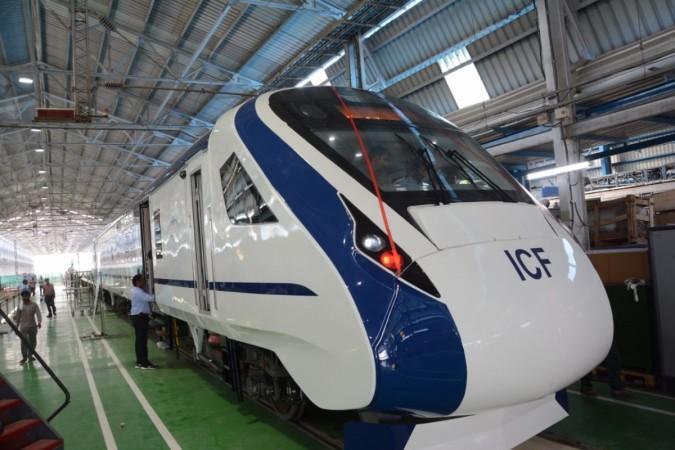
The Indian Railways will stop manufacturing its iconic Vande Bharat Express in the current fiscal year due to its high energy consumption. The specification of the train will be reviewed to make it a more energy-efficient train, Railway Board Chairman Vinod Yadav said.
However, as reported by financial daily Mint, the plan to produce 40 more such trains by March 2022 will be on track as Vinod added, "The energy consumption of the train was much more than the world standards. We realized that when we do mass production, we cannot have such high energy consumption. So we decided to review the specifications....that they become energy efficient. We will not be able to make any more Vande Bharat Express in 2019-20, but will produce 15 between 2020 and 2021, and 25 in 2021-2022."
Vande Bharat train has been under controversies ever since it was launched. Earlier, its production was stopped over the allegations of favouritism and lack of transparency. It was only after Railway Minister Piyush Goyal met with manufacturers and promised a transparent level-playing field, the manufacturing was resumed. Moreover, Southern Railway's Principal Chief Mechanical Engineer Shubhranshu, who played a major role in the design and development of the train was transferred as he reported cash crunch his region.

Railways have been a top priority to the Modi government and the Ministry of Railways is putting in the effort to offer high-speed trains services to the passengers. In the same direction, Prime Minister Narendra Modi launched New Delhi-Varanasi Vande Bharat Express, popularly known as Train 18. The train is manufactured by the Chennai-based Integrated Coach Factory (ICF).
Vande Bharat is a semi-high speed train that can attain a maximum speed of 160 km/hour. It is built at a cost of Rs 100 with each train having 16 compartments and two first-class coaches.
The Railway Board chairman also said the India Railways will also constitute a regulatory body when private operators will be allowed to run trains. The regulator will deal with issues like such as fares, the routes such trains can run on, along with the crucial aspect of safety. All the stakeholders will be taken into account before taking any decision on the issue. "We are studying all the issues related to pricing, with respect to private train operators. Private train operators will not come immediately but we will have to prepare for it from now. Whenever a private player comes in, a regulator will also come," Yadav said.

















